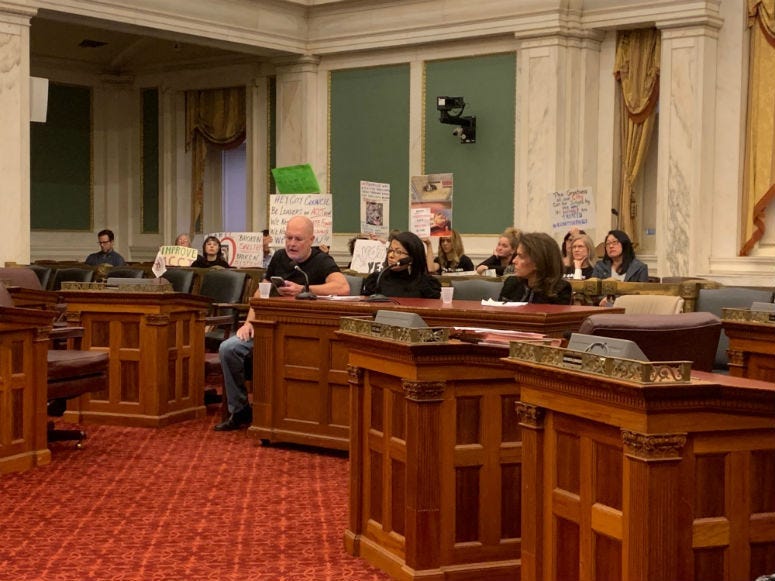
The plan puts money into dozens of city departments and programs, from hepatitis C treatment for inmates to an economic stimulus plan; or from violence prevention to recession protection.
"We have good news: We got a lot of money, now let's go out and invest it," said committee chair Maria Quinones-Sanchez at one point during the hearing, which was a condensed version of the annual monthslong budget hearings.
Budget Director Marisa Waxman explained the city had collected more than anticipated in a variety of taxes — notably, an extra $37 million from the Business Income and Receipts Tax — over two fiscal years, which created the unbudgeted pool of money.
For fiscal year 2019, which ended in July, the committee approved $97 million in extra spending, including $47 million in capital projects, $20 million in economic stimulus programs, $20 million in recession protection, and $10 million in the housing trust fund.
For this fiscal year, the committee approved spending $91 million more to bolster city department budgets and existing programs, such as the Resilience Project in drug-ravaged Kensington.
Some department heads were called on to explain their plans for the new spending.
Quinones-Sanchez took the courts to task for not including funding for a Council resolution to provide day care for jurors.
"This issue will not die," she said. "We're going to continue to make sure we see a plan reflective of that."
Councilmember Allan Domb returned to his crusade to see the prison budget lowered to reflect the reduction in the number of inmates.
"Is there a way for you to take a deep dive into this and see, are there areas where we could save some serious money?" he asked prison officials.
Half the economic stimulus spending will go to the small business corridor cleaning program, which attracted the most public testimony, virtually all in support.
"We support this program as it will create nearly 300 jobs, reduce blight and litter, and help retain and attract business and residents, and help reduce poverty and crime in our neighborhoods," said Rob Wonderling of the Chamber of Commerce for Greater Philadelphia.
There was also passionate public testimony in support of an amendment to the bill to increase the budget for Animal Care and Control Team. Domb complained he'd requested $480,790 for ACCT, which was not included in the original transfer ordinance.
"It's completely unacceptable that the city would not provide adequate funding that is essential to saving animals' lives and allowing our staff to work in better conditions," he said.
Animal welfare advocate Marsha Perelman described conditions in which healthy animals arrive at ACCT only to get pneumonia within days.
"Make no mistake," she said, "ACCT every day makes animals sick."
The package, including Domb's amendment, now goes to the full Council.
___

